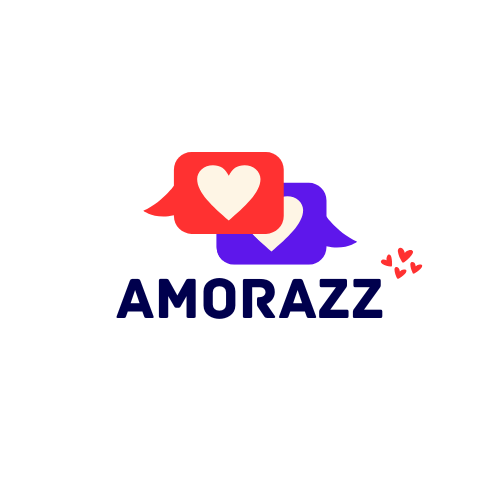In the bustling city of Chicago, relationships can feel like a rollercoaster ride—full of ups, downs, and the occasional loop-de-loop. Whether it’s navigating the complexities of love or simply trying to figure out who left the toilet seat up, couples often find themselves in need of a helping hand. That’s where relationship counseling comes in, offering a safe space to untangle the knots of communication and understanding.
Imagine having a professional referee in your corner, guiding you through the emotional tug-of-war. Relationship counseling in Chicago isn’t just about fixing problems; it’s about strengthening the bond and rediscovering the joy in being together. With the right support, couples can turn their bickering into banter and their misunderstandings into meaningful conversations. So, if you’re ready to swap the drama for harmony, it’s time to explore the world of relationship counseling.
Overview Of Relationship Counseling
Relationship counseling provides a valuable resource for couples in Chicago seeking to enhance their partnership. This professional support addresses various issues, such as communication breakdowns and conflict resolution. Skilled counselors utilize techniques to promote understanding, empathy, and connection between partners.
Counseling sessions often focus on identifying patterns of behavior that contribute to misunderstandings. Couples engage in exercises designed to improve their communication skills. These strategies foster an environment where partners feel safe expressing their thoughts and feelings.
Throughout the counseling process, couples learn to navigate disagreements constructively. Instead of viewing conflicts as threats, they begin to see them as opportunities for growth. This shift in perspective can lead to deeper emotional intimacy and increased satisfaction in the relationship.
Effective relationship counseling typically involves exploring each partner’s expectations and desires. Understanding these personal needs helps create a foundation for balanced interactions. Couples may also discuss past experiences that influence their current dynamics, allowing for greater insight into their relationship.
Many couples find it beneficial to participate in sessions regularly. Consistent counseling provides ongoing support, enhancing the skills learned during initial meetings. Ultimately, the purpose of relationship counseling centers around cultivating a healthier, more fulfilling partnership.
Benefits Of Relationship Counseling

Relationship counseling offers numerous advantages for couples seeking to enhance their connection. Through tailored sessions, couples can explore various aspects of their relationship, leading to positive transformations.
Improved Communication Skills
Counseling sessions actively promote the development of communication skills. Couples learn to express thoughts and feelings without misunderstandings. Trained counselors facilitate open dialogues, encouraging partners to listen attentively. They also practice techniques for articulating emotions in constructive ways. Improved communication fosters increased transparency, which deepens trust. Overall, enhanced skills lead to more meaningful conversations and a better understanding of each partner’s perspective.
Conflict Resolution Strategies
Counselors equip couples with effective conflict resolution strategies. Couples identify triggers and patterns that lead to arguments through guided discussions. They learn to address conflicts promptly and constructively, minimizing resentment. Techniques include reframing disagreements as opportunities for growth. Regular practice of these strategies results in healthier responses during conflicts. Ultimately, couples gain confidence in their ability to navigate challenges together, which reinforces their bond and enhances relationship satisfaction.
Types Of Relationship Counseling In Chicago

Various forms of relationship counseling are available in Chicago, tailored to meet specific needs. Each type offers unique benefits that help individuals and couples navigate their challenges more effectively.
Individual Counseling
Individual counseling focuses on personal issues impacting relationships. Clients explore emotional patterns and behaviors separately. Self-discovery plays a significant role, as individuals gain insight into their feelings and reactions. Licensed therapists use various techniques to guide clients towards healthier practices. This approach enables individuals to address problems like anxiety and self-esteem, ultimately improving the overall relationship environment. By fostering personal growth, clients can better contribute to their partnerships.
Couples Counseling
Couples counseling emphasizes improving communication and connection between partners. Specialized sessions help couples identify recurring issues that hinder their relationship. Counselors facilitate difficult conversations, allowing both partners to express their needs and concerns. Skills for active listening and constructive conflict resolution are developed during these sessions. Each partner learns to appreciate the other’s perspective, promoting empathy. As a result, couples often achieve greater intimacy and satisfaction. Regular counseling sessions can strengthen the bond, making couples more resilient in facing challenges together.
Family Counseling
Family counseling addresses dynamics within the entire family unit. Through guided discussions, families work to understand and resolve conflicts affecting their relationships. This type of counseling recognizes the interconnectedness of each member’s role in the family system. Therapists focus on improving communication and promoting healthy interactions. Everyone participates in exercises designed to enhance collaboration and support. As family members learn to express themselves openly, they build trust and identify shared goals. Enhanced understanding fosters a more nurturing family environment, leading to improved overall relationships.
Finding The Right Counselor In Chicago
Choosing the right counselor in Chicago can significantly impact the effectiveness of relationship counseling. Understanding the specific qualifications and approaches can guide couples toward an ideal match.
Credentials And Experience
When selecting a counselor, consider their educational background, licenses, and certifications. Licensed Marriage and Family Therapists (LMFTs), Licensed Professional Counselors (LPCs), and clinical social workers typically possess the necessary training. Additionally, experience working with couples and knowledge of diverse relationship issues enhances their effectiveness. Look for a professional with a track record of success in tackling challenges similar to those faced by the couple. Researching counselor profiles and reading reviews can further clarify their expertise.
Counseling Approaches
Counseling methods can vary widely, so understanding different approaches proves beneficial. Cognitive Behavioral Therapy (CBT) focuses on changing negative thought patterns, while Emotionally Focused Therapy (EFT) encourages emotional connection and safety. Furthermore, the Gottman Method emphasizes building a strong friendship within a relationship. Couples might also benefit from systemic therapy, which explores how relationships fit within broader contexts. Identifying which approach resonates can enhance the overall counseling experience, making it easier for couples to engage in meaningful dialogue.
Costs And Insurance Coverage
Costs for relationship counseling in Chicago vary based on factors like location, counselor experience, and session length. Hourly rates typically range from $75 to $250 per session, offering a spectrum to accommodate different budgets. Couples often benefit from understanding pricing structures, especially when considering the frequency of sessions.
Insurance coverage for counseling services can significantly affect the financial aspect. Many providers accept various health insurance plans that cover mental health services, including relationship counseling. Couples are encouraged to check with their insurance company for specifics on coverage limits and co-pays, ensuring that they maximize their benefits.
Some counselors offer sliding scale fees, making counseling accessible to clients with limited financial resources. Financial assistance programs also exist through community organizations, providing affordable counseling options. Couples exploring these options can find value in seeking help without financial strain.
Out-of-pocket expenses may be higher for those without insurance, but many couples view this cost as an investment in their relationship. Prioritizing mental wellness can lead to healthier and more fulfilling partnerships. Researching local counseling services allows couples to identify options within their financial means, promoting informed decision-making.
To summarize, couples should evaluate costs associated with relationship counseling. Understanding insurance coverage while exploring affordable options equips couples with the necessary information to make wise choices. Investing time and resources in counseling sessions often reaps relational benefits, leading towards greater satisfaction and connection.
Conclusion
Relationship counseling in Chicago offers couples a valuable opportunity to enhance their connection and navigate challenges effectively. By fostering open communication and understanding, couples can transform conflicts into constructive dialogues. This process not only improves relationships but also nurtures emotional intimacy and satisfaction.
Finding the right counselor is crucial for maximizing the benefits of therapy. With various counseling approaches available, couples can choose one that aligns with their needs. Understanding the costs and exploring financial options can further facilitate access to these essential services.
Investing time and resources in relationship counseling can lead to a healthier partnership, paving the way for a more fulfilling shared journey.

